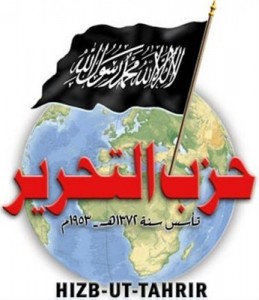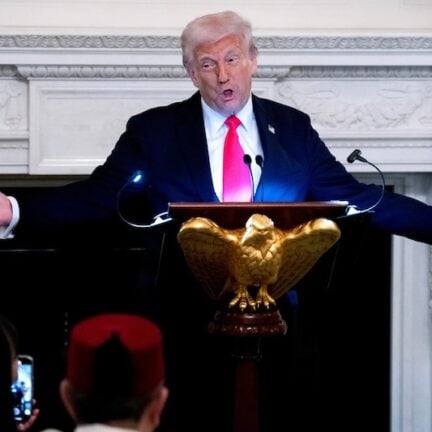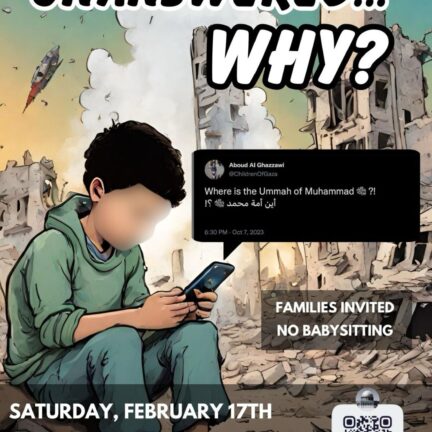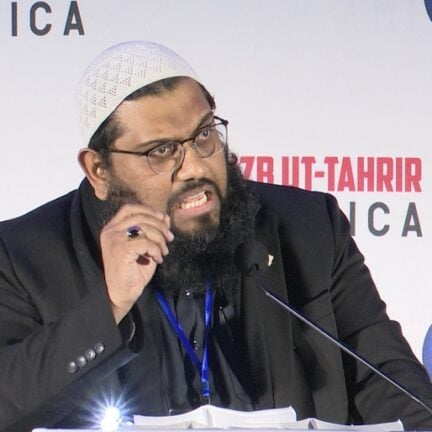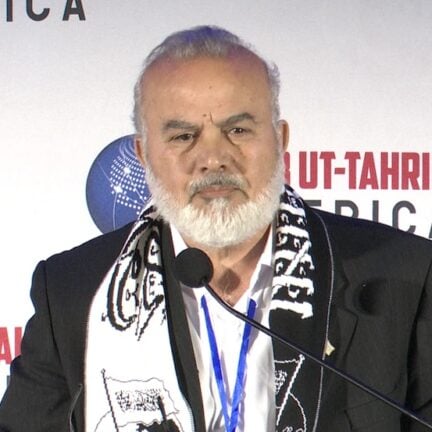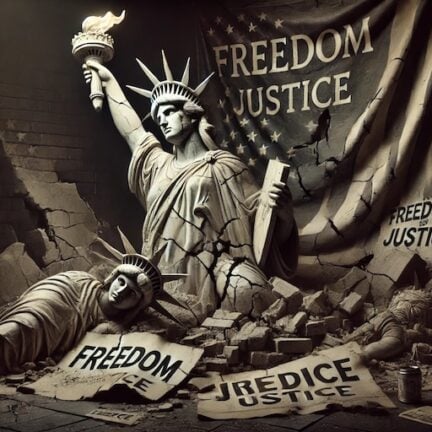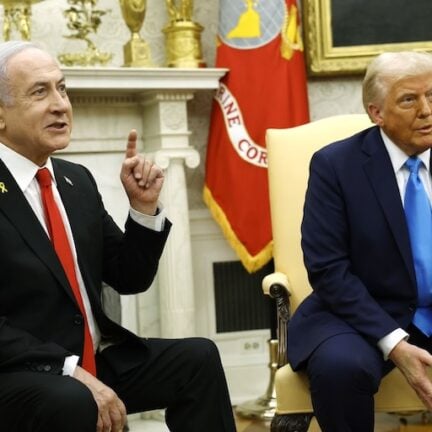About Us
Hizb ut-Tahrir is a political party whose ideology is Islam, so politics is its work and Islam is its ideology. It works within the Ummah and together with her, so that she adopts Islam as her cause and is led to restore the Khilafah and the ruling by what Allah (swt) revealed. Hizb ut-Tahrir is a political group and not a priestly one. Nor is it an academic, educational or a charity group. The Islamic thought is the soul of its body, its core and the secret of its life.
- The Reasons for the Establishment of Hizb ut-Tahrir
- The Aim of Hizb ut-Tahrir
- Membership in Hizb ut-Tahrir
- Hizb ut-Tahrir’s Work
- The Place of Hizb ut-Tahrir’s Work
- Adoption in Hizb ut-Tahrir
- The Method of Hizb ut-Tahrir
1. The Reasons for the Establishment of Hizb ut-Tahrir
Hizb ut-Tahrir was established in response to the saying of Allah (swt),
“Let there be among you a group that invites to the good, orders what is right and forbids what is evil, and they are those who are successful” [TMQ 3:104]
Its purpose was to revive the Islamic Ummah from the severe decline that it had reached, and to liberate it from the thoughts, systems and laws of Kufr, as well as the domination and influence of the Kufr states. It also aims to restore the Islamic Khilafah State so that the ruling by what Allah (swt) revealed returns.
2. The Aim of Hizb ut-Tahrir
Its aim is to resume the Islamic way of life and to convey the Islamic da’wah to the world. This objective means bringing the Muslims back to living an Islamic way of life in Dar al-Islam and in an Islamic society such that all of life’s affairs in society are administered according to the Shari’ah rules, and the viewpoint in it is the halal and the haram under the shade of the Islamic State, which is the Khilafah State. That state is the one in which Muslims appoint a Khaleefah and give him the bay’ah to listen and obey on condition that he rules according to the Book of Allah (swt) and the Sunnah of the Messenger of Allah (saw) and on condition that he conveys Islam as a message to the world through da’wah and jihad.
The Party, as well, aims at the correct revival of the Ummah through enlightened thought. It also strives to bring her back to her previous might and glory such that she wrests the reins of initiative away from other states and nations, and returns to her rightful place as the first state in the world, as she was in the past, when she governs the world according to the laws of Islam.
It also aims to bring back the Islamic guidance for mankind and to lead the Ummah into a struggle with Kufr, its systems and its thoughts so that Islam encapsulates the world.
3. Membership in Hizb ut-Tahrir
The Party accepts Muslim men and women as its members regardless of whether they are Arab or non-Arab, white or colored, since it is a party for all Muslims. It invites all Muslims to carry Islam and adopt its systems regardless of their nationalities, colors and madhahib (Schools of Thought), as it looks to all of them according to the viewpoint of Islam.
The method of affiliating the people to the Party is through their embracing of the Islamic ‘aqeedah, their maturity in the Party culture, and by their adoption of the thoughts and opinions of the Party. The person in question imposes himself on the Party, when he melts into it, and when the da’wah interacts with him and he adopts the thoughts and the concepts of the Party. So the affiliation that binds together the members of the Party is the Islamic ‘aqeedah and the Party’s culture which originates from this ‘aqeedah. The women’s circles in the Party are separate from the men’s circles. Women’s circles are supervised by either their husbands, relatives who they cannot marry or by other women.
4. Hizb ut-Tahrir’s Work
The work of Hizb ut-Tahrir is to carry the Islamic da’wah in order to change the situation of the corrupt society so that it is transformed into an Islamic society. It aims to do this by firstly changing the society’s existing thoughts to Islamic thoughts so that such thoughts become the public opinion among the people, who are then driven to implement and act upon them. Secondly the Party works to change the emotions in the society until they become Islamic emotions that accept only that which pleases Allah (swt) and rebel against and detest anything which angers Allah (swt). Finally, the Party works to change the relationships in the society until they become Islamic relationships which proceed in accordance with the laws and solutions of Islam. These actions which the Party performs are political actions, since they relate to the affairs of the people in accordance with the Shari’ah rules and solutions, and politics in Islam is looking after the affairs of the people, either in opinion or in execution or both, according to the laws and solutions of Islam.
What is manifested in these political actions is culturing the Ummah with the Islamic culture in order to melt her with Islam and to cleanse her of the corrupt creeds, false thoughts and erroneous concepts including the influence of Kufr thoughts and opinions.
What is also manifested in these political actions is an intellectual and political struggle. The manifestation of an intellectual struggle is through the struggle against the thoughts and systems of Kufr. It is also manifested in the struggle against false thoughts, corrupt creeds and erroneous concepts by demonstrating their corruption, showing their error and presenting clearly the verdict of Islam concerning them.
As for the political struggle, it is manifested in the struggle against the disbelieving imperialists, to deliver the Ummah from their domination and to liberate her from their influence by uprooting their intellectual, cultural, political, economic and military roots from all of the Muslim countries.
The political struggle also appears in challenging the rulers, revealing their treasons and conspiracies against the Ummah, and by taking them to task and changing them if they denied the rights of the Ummah, or refrained from performing their duties towards her, or ignored any matter of her affairs, or violated the laws of Islam.
So all the work of the Party is political, whether it is in office or not. Its work is not educational, as it is not a school, nor is its work concerned with giving sermons and preaching. Rather its work is political, in which the thoughts and laws of Islam are presented in order to act upon them and to carry them so as to establish them in life’s affairs and in the State.
The Party conveys the da’wah for Islam so that it is implemented, and so that its ‘aqeedah becomes the foundation of the State and the foundation of its constitution and canons. This is because the Islamic ‘aqeedah is a rational creed and it is a political doctrine from which originates a system that deals with all of man’s problems, whether they are political, economic, cultural, social or any other issue for that matter.
5. The Place of Hizb ut-Tahrir’s Work
Although Islam is a universal ideology, its method does not, however, allow one to work for it universally from the beginning. It is necessary, however, to invite to it universally, and make the field of work for it in one country, or a few countries, until it is consolidated there and the Islamic State is established.
The whole world is a suitable location for the Islamic da’wah. But since the people in the Muslim countries have already embraced Islam, it is necessary that the da’wah starts there. The Arab countries are the most suitable location to start carrying the da’wah because these countries, which constitute part of the Muslim world, are inhabited by people who speak the Arabic language, which is the language of the Qur’an and hadith, and is an essential part of Islam and a basic element of the Islamic culture.
The Hizb began and started to carry the da’wah within some of the Arab countries. It then proceeded to expand the delivery of the da’wah naturally until it began to function in many Arab countries and also in non-Arab Muslim countries as well.
6. Adoption in Hizb ut-Tahrir
After study, thought and investigation about the current situation of the Ummah and about what state it had reached, and the situation at the time of the Messenger of Allah (saw), and the time of the four Khulafa’a ar-Rashidun and the time of those who followed them, and referring to the seerah and the method by which he (saw) had carried the da’wah from the moment he had started until he had established the State in Madinah; and after studying the way that he (saw) functioned in Madinah and by referring to the Book of Allah (swt), and the Sunnah of His Messenger (saw) and to what they indicated of the Ijma’ of the Sahabah and Qiyas, and the enlightened opinions of the Sahabah and their followers, and the opinions of the mujtahideen, after all this Hizb ut-Tahrir then adopted thoughts, opinions and laws related to the idea and method. They are but Islamic thoughts, opinions and rules, nothing of which is un-Islamic, nor are they affected by anything un-Islamic; rather they are nothing but Islamic and they do not depend upon anything other than the sources of Islam. The Party resorts to thought in concluding these thoughts, opinions and rules.
The Hizb adopted the thoughts, rules and opinions that are necessary for it to proceed in the work to resume the Islamic way of life and to carry the Islamic da’wah to the world through the establishing of the Khilafah State and appointing the Khaleefah.
The Party enclosed all that it adopted and what was issued by it of thoughts, rules and opinions in its books and in its many leaflets which it published and issued to the people.
These are the books which the Party has issued:
- The System of Islam
- The Ruling System of Islam
- The Economic System of Islam
- The Social System of Islam
- The Party Structure
- The Concepts of Hizb ut-Tahrir
- The Islamic State
- The Islamic Personality (in three volumes)
- Political Concepts of Hizb ut-Tahrir
- Political Views of Hizb ut-Tahrir
- Introduction to the Consitution
- The Khilafah
- How the Khilafah was Destroyed
- The Penal Code
- The Rules of Evidences
- Refutation of Marxist Communism
- Thought
- Presence of Mind
- The Islamic Thought
- The Refutation of the Theory of Liability in Western Law
- A Warm Call
- The Ideal Economic Policy
- The Treasury in the Khilafah State
The Party has also issued thousands of leaflets, reminders and intellectual and political booklets.
When the Party carries these concepts and rules to the people, it carries them politically, i.e. it carries these concepts to them so that the people adopt them, act upon them and carry them to establish them in government and in life’s affairs. This is because it is a duty upon them as Muslims, as it is a duty on the Party as an Islamic party, and its members as Muslims.
The Party depends in its adoption of the Islamic thoughts and rules solely upon the revelation of the Qur’an, the Sunnah, Ijma’ of the Sahabah and Qiyas, because these four sources are the only sources whose proof has been confirmed by definite evidence.
7. The Method of Hizb ut-Tahrir
The method adopted by Hizb ut-Tahrir to convey the da’wah is Shari’ah Law derived from the seerah of the Messenger of Allah (saw) in his performance during the conveyance of the da’wah. This is so because it is obligatory to follow him, as Allah (swt) says,
“Surely, in the Messenger of Allah, is the best example for those who believe in Allah and the Last Day and remember Allah often.”
[TMQ 33:21]
“Say if you love Allah follow me, Allah will love you and forgive you your sins.”
[TMQ 3:31]
“Whatever the Messenger gives you take it, and whatever he forbids you abstain from it.”
[TMQ 59:7]
There are many other such verses which denote that following the Messenger of Allah (saw), taking him as an example and taking all aspects of the deen from him is obligatory.
Since the Muslims nowadays live in Dar al-Kufr, because they are governed with laws other than the revelation of Allah (swt), so their land resembles Makkah where the Messenger of Allah (saw) was first sent as a Messenger. Therefore, it is necessary to take the Makkan part of the Messenger of Allah’s seerah as an example in conveying the da’wah.
By studying the life of the Messenger of Allah (saw) in Makkah until he (saw) had managed to establish the Islamic State in Madinah, it is evident that he (saw) went through clearly defined stages, in each of which he (saw) used to perform specific clear actions. So the Party took from that the method of action, the stages of its action and the deeds which it has to perform during these stages in accordance with the deeds which the Messenger of Allah (saw) performed during the stages of his work.
Based on this, the Party defined its method of work into three stages:
- The First Stage: The stage of culturing to produce people who believe in the idea and the method of the Party, so that they form the Party group.
- The Second Stage: The stage of interaction with the Ummah, to let the Ummah embrace and carry Islam, so that the Ummah takes it up as its issue, and thus works to establish it in the affairs of life.
- The Third Stage: The stage of establishing government, implementing Islam generally and comprehensively, and carrying it as a message to the world.
The Party started the first stage in al-Quds in 1372 AH (1953 CE) under the leadership of its founder, the honorable scholar, thinker, able politician, qadi in the Court of Appeals in al-Quds, Taqiuddin al-Nabhani (may Allah’s mercy be upon him). In this stage, the Party used to make contact with the members of the Ummah, presenting to them, on an individual basis, its idea and method. Whoever accepted the basic idea, the Party would organize for him intensive study in the circles of the Party, so that he became purified by the thoughts and rules of Islam adopted by the Party and thus in the process became an Islamic personality. Thus he interacts with Islam and enjoys an Islamic mentality and Islamic emotions leading him to start to carry the da’wah to the people. When a person reaches this stage he impresses himself on the Party and thus becomes a member of it. This is the way in which the Messenger of Allah (saw) had acted in his first stage of the da’wah, which continued for three years, by inviting people individually and presenting to them that which Allah (swt) had revealed to him (saw). He gathered together secretly those who believed in him on the basis of this ideology. He was concerned to teach them Islam and read to them from what was revealed and was being revealed to him until he had melted them with Islam. He used to meet them secretly and teach them in places hidden from the eyes of the people. They also used to perform their worship in disguise. Eventually, the da’wah for Islam spread in Makkah, and people started to talk about it and began to enter Islam in groups.
At this stage of the da’wah, the Party focused its attention on building its body, increasing its membership and culturing the individuals in its circles by the concentrated Party culture until it had managed to form a party structure from people who were melted by Islam, and who had adopted the thoughts of the Party and had interacted with these thoughts and conveyed them to the people. After the Party had managed to form its structure and society had become aware of it, recognized it and its thoughts and what it was calling for, the Party moved to the second stage.
This stage is the interaction with the Ummah to make her carry Islam and to establish in the Ummah the common awareness and the public opinion over the thoughts and the rules of Islam adopted by the Party, so that she adopts them as her own thoughts and strives to establish them in life, and proceeds with the Party in the work to establish the Khilafah State and to appoint the Khaleefah in order to resume the Islamic way of life and carry the Islamic da’wah to the world.
In this stage the Party developed its activities from only approaching individuals to also talking to the masses collectively. In this stage it used to carry out the following functions:
- The concentrated culturing of individuals in circles to build the body of the Party and increase its members, and produce Islamic personalities that are capable of conveying the da’wah and rushing forward into the intellectual and political struggle.
- The collective culturing of the masses of the Ummah with the thoughts and the rules of Islam which the Hizb had adopted, through lessons, lectures, and talks in the mosques, centers and common gathering places, and through the press, books and leaflets. This was done in order to create a common awareness within the Ummah and to interact with her.
- The intellectual struggle against the Kufr creeds, systems and thoughts, the erroneous ideas and the fraudulent concepts by exposing their falsehood, defects and contradiction with Islam, in order to deliver the Ummah from them and from their effects.The political struggle, which is represented by the following:
- A struggle against the Kufr colonialist states which have domination and influence on the Islamic countries. The challenge against colonialism in all its intellectual, political, economic and military forms, involves exposing its plans, and revealing its conspiracies in order to deliver the Ummah from its control and to liberate it from any effect of its influence.
- A struggle against the rulers in the Arab and Muslim countries, by exposing them, taking them to task, acting to change them whenever they denied the rights of the Ummah or neglected to perform their duty towards her, or ignored any of her affairs, and whenever they disagreed with the rules of Islam, and acting also to remove their regimes so as to establish the Islamic rule in its place.
- To assume the interests of the Ummah and to adopt its affairs in accordance with the Shari’ah rules.
The Party has carried out all this work following what the Messenger of Allah (saw) did after Allah (swt) had revealed to him,
“Proclaim what you are ordered (to say) and turn away from the idolaters.”
[TMQ 15:94]
The Messenger of Allah (saw) proclaimed his message and invited Quraysh to Mount Safa and told them that he was a Messenger sent to them. He asked them to believe in him. He started to make his call to the masses as well as to the individuals. When Quraysh opposed him, he confronted Quraysh, its false gods, creeds and thoughts, explaining their falsehood, corruption and defects. He defamed them and attacked them as he attacked all the existing false creeds and ideas. The verses of the Qur’an were revealed to him continuously over these issues and they condemned Qurayshites’ acts of devouring riba, the burying of their daughters alive, the fraudulent weighing and fornication. Verses were also revealed attacking the leaders and chiefs of Quraysh, insulting them, their thoughts and their forefathers, and exposing their conspiracies against the Messenger of Allah (saw) and against his da’wah and his Sahabah.
The Party was clear, open and challenging in the carrying of its thoughts and in confronting the false thoughts and political parties, both in its struggle against the disbelieving colonialists and in its struggle against the rulers. It does not flatter, coax, act courteously or prefer safety, irrespective of the results or the circumstances of its da’wah. It challenges everybody who disagrees with Islam and its laws, a matter which has exposed it to severe harm committed by the rulers against it; such as imprisonment, torture, deportation, pursuit, attacking members livelihoods, impairment of interests, banning from travelling and murder. The oppressive rulers in Iraq, Syria, Libya and others have killed dozens of its members. The prisons of Jordan, Syria, Iraq, Egypt, Libya and Tunisia are full of its members. The Party sustained all this through following the example of the Messenger of Allah (saw). It was he (saw) who came with the Message of Islam to the whole world. He challenged it in an open manner, believing in the truth which he (saw) called for. He (saw) challenged the whole world, struggling with all and sundry, without giving any account to their habits, traditions, religions, creeds, rulers or common people. He paid not the slightest attention to anything except the Message of Islam. He took the initiative against Quraysh by defaming its gods. He challenged them about their beliefs and he insulted them whilst he was only one person, without either adequate means or helpers, and having no weapons except his deep Iman in the Message of Islam which he (saw) was sent with. Though the Party committed itself to be open, clear and challengingly in its da’wah, it restricted itself to political actions alone and did not exceed them by resorting to material actions against the rulers or against those who opposed its da’wah, following the example of the Messenger of Allah (saw) who restricted himself in Makkah solely to the da’wah and he (saw) did not carry out any material actions until he had migrated to Madinah. And when the people of the second pledge of ‘Aqabah proposed that he give them permission to fight the people of Mina with the sword, he answered them saying: “We have not been ordered to do that yet”. And Allah (swt) asked him (saw) to be patient about the persecution as the Messengers of Allah before him had been, when Allah (swt) said to them,
“Messengers indeed have been denied before you, and yet they remained patient after the rejection (of their message) and they were patient against the persecution till our victory reached them”
[TMQ 6:34]
The fact that the Party does not use material power to defend itself or as a weapon against the rulers is of no relevance to the subject of jihad, because jihad has to continue till the Day of Judgment. So whenever the disbelieving enemies attack an Islamic country it becomes compulsory on its Muslim citizens to repel the enemy. The members of Hizb ut-Tahrir in that country are a part of the Muslims and it is obligatory upon them as it is upon other Muslims, in their capacity as Muslims, to fight the enemy and repel them. Whenever there is a Muslim amir who declares jihad to enhance the Word of Allah (swt) and mobilizes the people to do that, the members of Hizb ut-Tahrir will respond in their capacity as Muslims in the country where the general call to arms was proclaimed.
When the society became unresponsive to the Party as a result of the loss of the Ummah’s confidence in its leaders and chiefs on whom it had placed its hopes, the difficult circumstances under which the region was placed in order to ease the implementation of the conspiracies, the oppression and despondency which the rulers practiced against their peoples and the severe harm which the rulers inflicted on the Party and its members, when the society became unresponsive for these reasons the Party started to seek the support of the influential people with two objectives in mind:
For the objective of protection, so that it could manage to continue its da’wah while secure from affliction.
To take over the rule in order to establish the Khilafah and apply Islam.
In addition to performing the actions of seeking material support, the Hizb continues to perform all the actions which it used to carry out, like concentrated circles, the collective culturing, focusing on the Ummah to make her carry Islam and establishing the public opinion for Islam within it. It continued to struggle against the colonial disbelieving states by revealing their plans and exposing their conspiracies, as it continued to struggle against the rulers by adopting the interests of the Ummah and taking care of its affairs.
The Party still continues in its work and hopes that Allah (swt) will grant to it and to the Islamic Ummah the help, success and victory, and at that moment the believers will rejoice.
Concepts
More From Concepts

